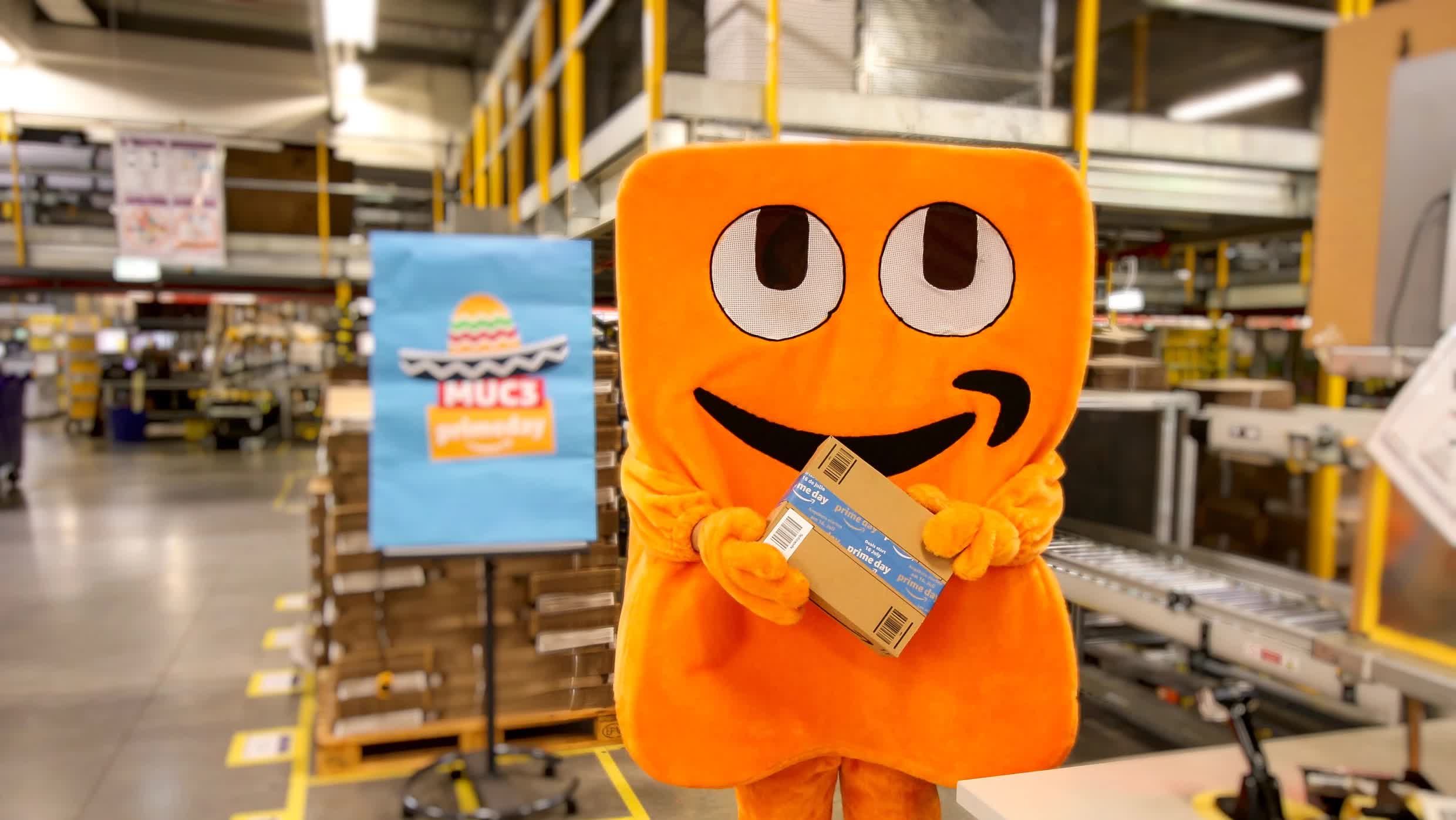Facepalm: Good news for Amazon warehouse workers living in fear of being injured, fired, or replaced by machines as they earn $17 per hour at a company that generated $9.9 billion in profit last quarter: they can write a letter to the company mascot, Peccy, if they're facing financial hardships this holiday season in the hope "some of their holiday wishes" come true.
A new report from The Guardian reveals that Amazon warehouse SWF1 in Rock Tavern, New York, posted a flier reading: "Are you or someone you know facing financial hardship this holiday season? Peccy wants to help! Write a letter to Peccy. If the Peccy team selects you, some of your holiday wishes could come true!"
Peccy is Amazon's definitely-not-a-Minion-rip-off orange mascot. He also acts as a "cultural ambassador" for the company. Why is he called Peccy? According to an Amazon HR director, it's because "he represents our peculiar ways. We call ourselves at Amazon very peculiar." Employees being forced to urinate in bottles, for example, is quite peculiar.
Unsurprisingly, writing letters to an orange blob in the hope of being able to survive Christmas or spend time with loved ones instead of working every hour of the day isn't going down well with employees. Keith Williams, a worker at the Amazon SWF1 warehouse, was especially critical of the competition in light of the company's $9.9 billion in profits and $143 billion of revenue during the last quarter.
"It's startling to see them shell out all this money to promote Amazon, get us excited about Amazon, but not actually give us what would endear us to Amazon, which would be a living wage," he told The Guardian.
"All we're just asking for from Amazon is to do what they're clearly able to do with the billions of dollars that they have. We just want to share in some of the efforts that we do for Amazon," Williams added. "We want wages. Not trinkets."
The average wage for an Amazon warehouse worker is $20.50 per hour, but it starts at $17 an hour. Holiday seasons and sales events often see employees putting in overtime and extra shifts, working six or seven days in a row. "People are being pushed past their limit," Williams said. A report in April found the rate of worker injuries in Amazon warehouses during 2022 was 70% higher than those in similar warehouses, and the rate of serious injuries was twice as high.
Amazon warehouse workers are also worried about the prospect of their jobs being taken by robots. In October, the company introduced two new machines: the Roomba-like Sequoia, and the humanoid Digit, a two-legged robot that can walk forward, backward, and sideways, squat and bend, and move, grasp, and handle items using its arm/hand-like clasps.
Amazon has defended the competition, calling it well-intentioned while claiming it received a lot of positive feedback from employees. Amazon also pointed out that the initiative was limited to the New York site and not company-wide, and that it is investing more money toward pay increases and extra holiday pay incentives.
Amazon's corporate workers aren't having a fun time right now, either. The company's strict return-to-office policy is pushing many employees into quitting.

